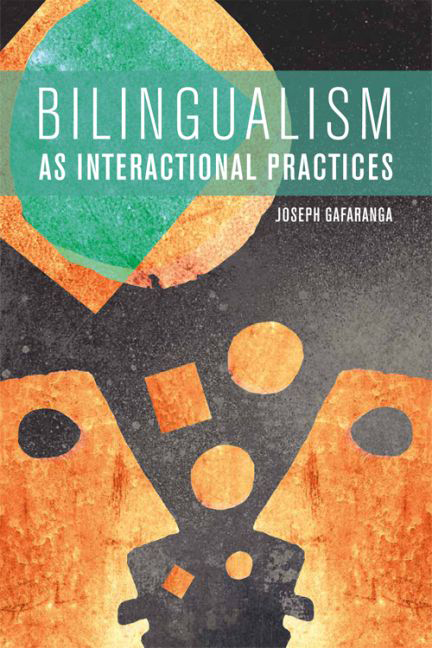Book contents
- Frontmatter
- Contents
- List of illustrations
- Acknowledgements
- Transcription conventions
- 1 Introduction
- 2 The rehabilitation of code-switching
- 3 An inductive perspective on bilingualism as interactional practices
- 4 Language choice and speech representation in bilingual interaction
- 5 Language choice and conversational repair in bilingual interaction
- 6 Language choice and appositive structures in written texts in Rwanda
- 7 Summary and conclusion
- References
- Index
1 - Introduction
Published online by Cambridge University Press: 26 April 2017
- Frontmatter
- Contents
- List of illustrations
- Acknowledgements
- Transcription conventions
- 1 Introduction
- 2 The rehabilitation of code-switching
- 3 An inductive perspective on bilingualism as interactional practices
- 4 Language choice and speech representation in bilingual interaction
- 5 Language choice and conversational repair in bilingual interaction
- 6 Language choice and appositive structures in written texts in Rwanda
- 7 Summary and conclusion
- References
- Index
Summary
Where it all started
The Kinyarwanda expression ‘Kuvuga indimi ebyiri’ literally means ‘to speak two languages’, i.e. to be bilingual. However, the expression can also be used non-literally and mean either ‘to say one thing and mean another’ or ‘to say one thing to one person and another to another person’. That is to say, when used non-literally, the expression evokes less than positive connotations for the person described as speaking ‘indimi ebyiri’ (two languages). Whether Rwandans actually associate bilingualism with negative connotations is an empirical question I prefer to leave alone for the moment. However, it is worth noting that such negative attitudes towards bilingualism have been documented in other contexts. A Cambridge University professor is reported to have said:
If it were possible for a child to live in two languages at once equally well, so much the worse. His intellectual and spiritual growth would not thereby be doubled, but halved. Unity of mind and character would have great difficulty in asserting itself in such circumstances. (Laurie, 1890: 15)
In educational contexts, bilingual children were, until recently, categorised as having ‘special needs’, with all the negative connotations that this entails. As a result, special provisions (often less than ideal) were made available to help them shed their bilingualism and become monolingual. Certainly, the fact that the children concerned had access to two or more languages was not celebrated as such. The children's bilingualism, rather than monolingual teaching and assessment, was blamed for their apparently unsatisfactory school performance. At the level of the wider community, the monolingual ideology, and the resulting stigmatisation of bilingualism, show in the idealised notion of ‘monolingual state’. The slogan ‘one nation, one language’ remains, to this date, such a powerful one that states that are actually multilingual adopt monolingual policies. The view is held that bilingualism is a threat to national unity, and therefore a bad thing. The following comment (Marten and Kula, 2008: 306) refers to post-independence Zambia but could apply to many other contexts, African and non-African, with only slight modification:
tribalism and centrifugal tendencies were seen as a threat to the new country and the establishment of ‘national identity’ became a paramount task: the national motto adopted after independence was ‘One Zambia, One Nation’.
Information
- Type
- Chapter
- Information
- Bilingualism as Interactional Practices , pp. 1 - 12Publisher: Edinburgh University PressPrint publication year: 2017
